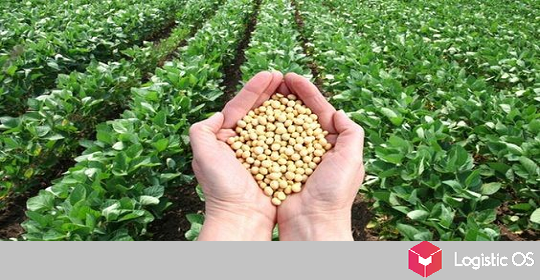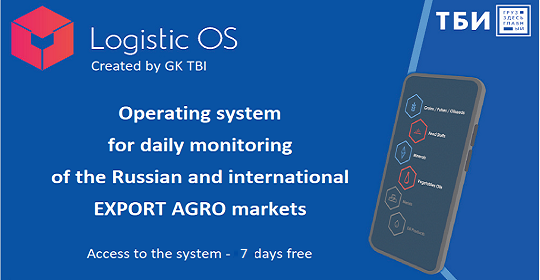The Fat and Oil Union proposes to ban the export of sunflower and rapeseed outside the EAEU for 4 years.
Based on the proposal made to the government, it can be either a complete ban on exports or the introduction of a quota.
If this project is approved, it will start working on September 1, 2020.
At the same time, the RF Ministry of Economic Development and Trade is considering a proposal to raise the duty on sunflower export to 20%, but not less than 80 euros per ton.
Now it is 6.5%, but not less than 9.75 euros.
This project began to be discussed at the end of last year, and, if adopted, the new rate will be valid from February 1 to August 31.
Many market participants, both then and now, oppose the growth of tariffs, arguing that agricultural producers will suffer first of all, who may plan to reduce the sown areas, which have not increased this year either.
The situation with all kinds of bans has arisen due to the fact that the oil and fat union is concerned about the lack of raw materials for oil refiners.
According to the initiators of the innovations, the reduction in exports will allow the processing capacities to be loaded to the maximum.
This year, a ban on the export of sunflower was already introduced from April 12 to June 30, which led to a sharp increase in prices for oil and oilseeds.
After that, a permitting export regime was introduced, which, according to exporters, simply could not be used.
Farmers sell raw materials — and they fear that export restrictions will force them to reduce prices due to increased supply in the domestic market.
Representatives of our governing bodies are guided by the experience of Turkey, where restrictive measures have led to an increase in raw material prices.
In turn, it is more profitable for oil refineries to sell the finished product, but there is not enough raw material for it.
According to the project «Export of agricultural products», by 2024 export of fat and oil products should grow from $ 3.5 billion to $ 8.55 billion.
Accordingly, its share in the structure of exports of the agro-industrial complex should grow to 19%, in the growth of exports — to 22%.
To achieve such ambitious plans, it is necessary not only to maximize the unused capacity, but also to build new ones that can process up to 10 million tons of raw materials per year.
Investments in these projects will amount to more than 300 billion rubles.
Then the export of vegetable oils and meal can grow to 15 million tons per year.
In the 2019/20 agricultural year, according to the platform Logistic OS, vegetable oils were exported 4,138,872 tons.
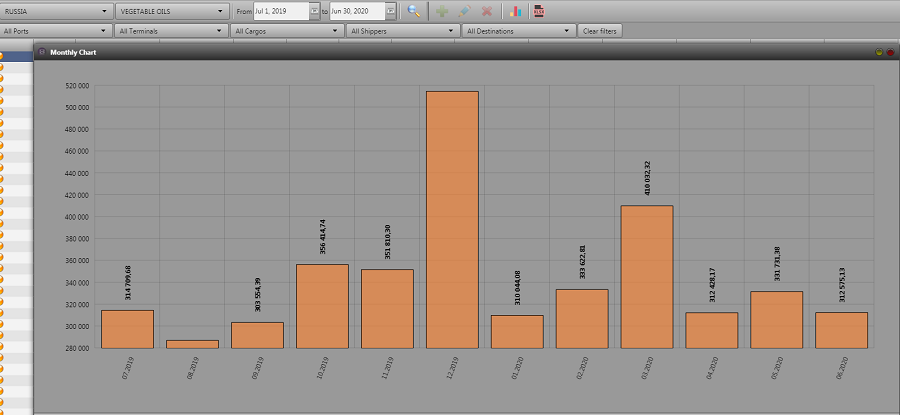
And for the previous year 3,309,528 tons.
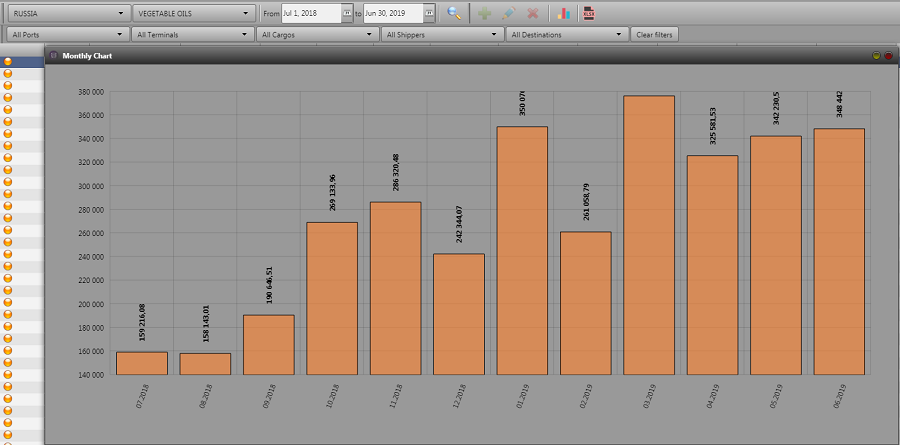
The increase was 25%.
Russia is actively entering the market of India — the largest importer of vegetable oils in the world.
In 2018/19, 80,760 tons of oil were shipped to this country.
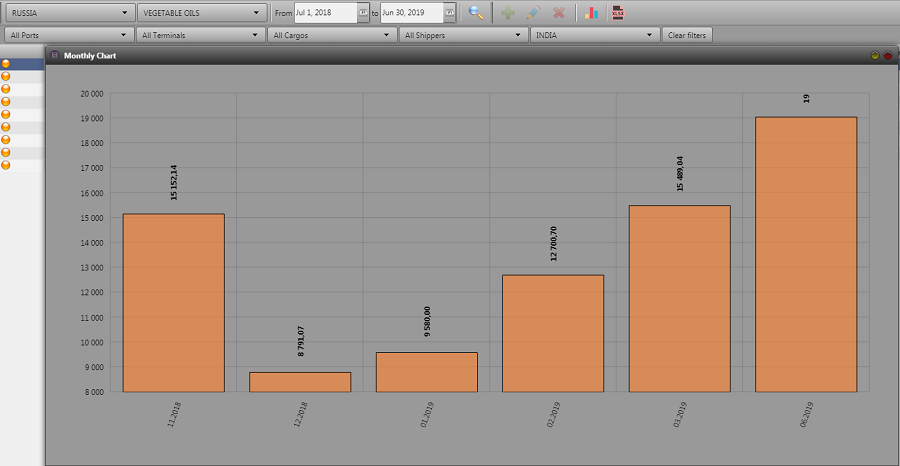
And in 2019/20. already 387,011 tons, having moved its competitors — Ukraine on this market.
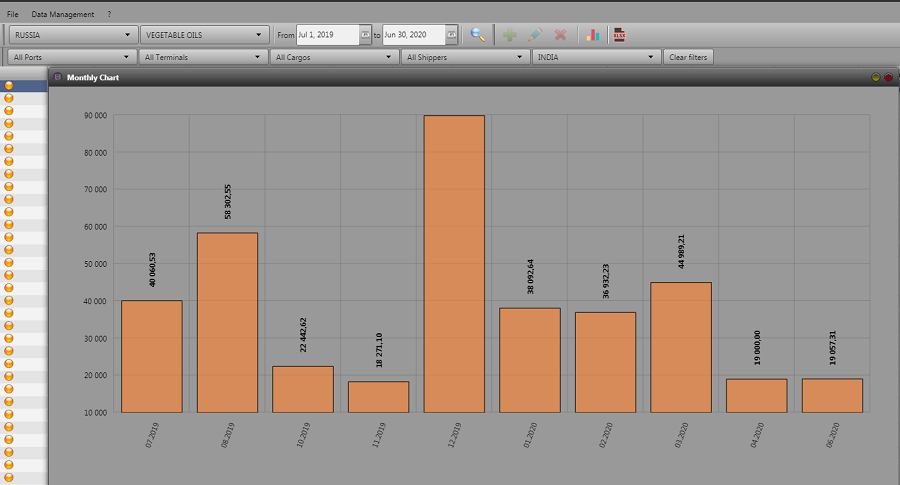
In the season 2018/19. mz 2.5 million tons of Indian imports, Ukrainian oil accounted for 2.2 million tons.
Most likely, at the beginning of the export season, sunflower exports will be maximum in all directions, because it is not known what will happen with the restrictions, and most importantly, it is not known what will happen to the harvest.
So far, analysts assume that it will be at the level of last year, or slightly lower, targeting 14.6 million tons.
But, most likely, the forecast will decline, since the sown area under this crop turned out to be less than previously planned.
